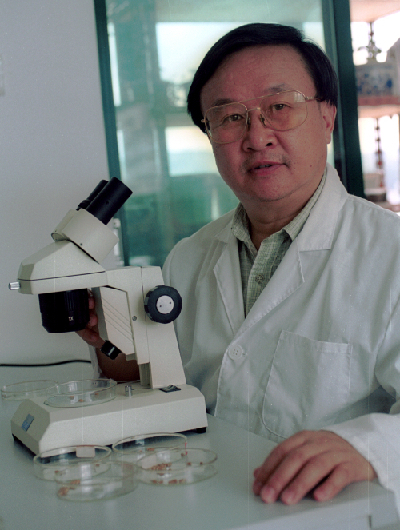|
There are three major ways in which to create a new plant variety: pollination, cell fusion and chromosome hybridization. Pollination can be achieved between different varieties of the same plant species, such as between different varieties of rice; and between different species or genera, such as between apple and pear. Cell fusion is when the protoplasts of plants from different species or families are artificially combined inside a cell, after which the plant cell is then cultured and grown into a full-sized plant.
In 1972, American scientist Peter S. Carlson fused the protoplasts of two tobacco varieties--Nicotiana glauca and Nicotiana langsdorfii--to produce a hybrid of the pair, yet there was no evidence to demonstrate that the chromosomes in the cells were hybridized.
Chromosome hybridization technology differs from sexual hybridization in that it directly brings new chromosomes or their fragments into the cells of receptors to mix with the existing chromosomes, which will in turn produce a new hybrid chromosome.
Zhu said that although the synthetic chromosome belongs to a eukaryote at the lowest level, the technology is still a milestone in synthetic biology.
The author is a journalist with China Today magazine
Email us at: zanjifang@bjreview.com
 |
|
(COURTESY OF ZHU PEIKUN) |
Zhu Peikun's Biological Biography
2009-present: Has been awarded several birth certificates for new plant species (rice-corn, wheat-corn, pea-corn and sorghum-rice) by the Ministry of Agriculture;
2011: Became an editorial board member of the Bulletin of Agricultural Science and Technology, a leading agricultural journal in China;
2003: Founded Shenzhen Bioroad Biotechnology Co. Ltd.;
1990: Acted as a visiting expert at the University of Alaska in the United States;
1983: Published a book on enzymic technology, the first work of its kind in China;
1978-86: Served as assistant at the Plant Viruses Lab of Fudan University.
(Compiled by Beijing Review) | 